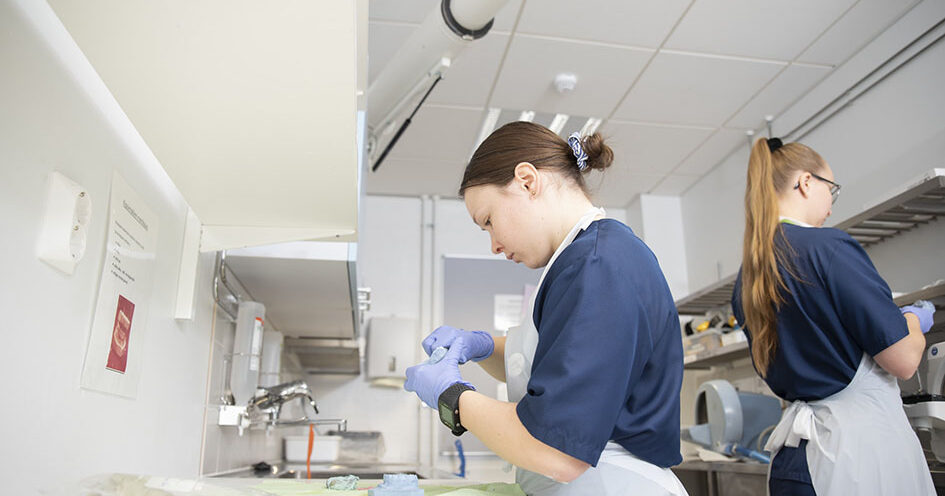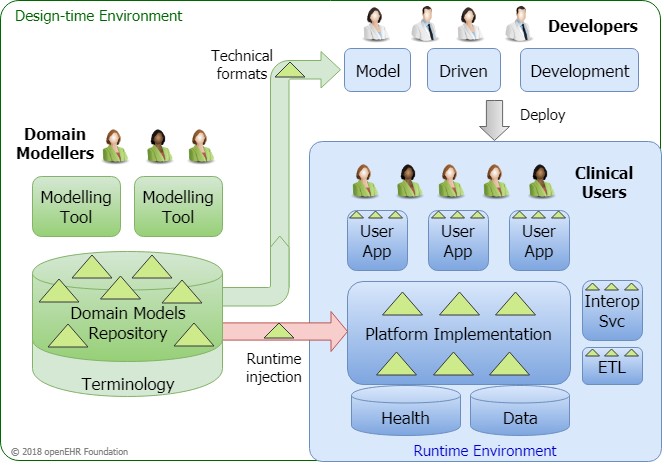
Savonia article: Accelerating the development of decision support systems through the application of openEHR technology
#SavoniaUAS
In recent years, the modernization of information systems used by health care and social welfare organizations worldwide has highlighted implementation models in which modernization is based on the utilization of open platforms and openEHR technology. Such a path of reform has been seen as an opportunity to accelerate the development of decision support systems. Actually, the importance of OpenEHR has even been seen in some evaluations as revolutionizing health care by shifting the implementation model of interoperability based on integrations and data transfer to history and putting knowledge capital at the center.
Thus, openEHR enables the transition from an application-centric to a data-centric architecture, eliminates data silos and point-to-point integrations between applications, and creates a modular architecture that accelerates development.
OpenEHR is an e-health technology consisting of open platform specifications, clinical models and modeling, and software that works together to develop health information systems in an open and modular way. OpenEHR technology in decision support systems emphasizes the standardization and harmonization of knowledge capital.
A harmonized knowledge capital, combined with the principles of modularity, openness, and ready-made tools for platform technology, will help create a phased development ecosystem where professionals can be involved in development. In such an Ecosystem, benefits can be realized in stages, patient-centered solutions can be implemented, and knowledge capital and data platform management can be held under the organization’s control.
The OpenEHR could gradually create an environment for developing open platform decision support systems directly connected to the health information system in technology and vendor-neutral way. The main enablers of OpenEHR technology would be a multi-level modeling paradigm, an archetype-based data architecture, and a Guideline Definition Language (GDL) specification. In particular, the GDL specification would play a key role, as it will address one of the key challenges in developing decision support systems; There is no common architecture for developing and sharing decision support modules and services.
With the support of GDL, professionals can participate in developing decision support systems by defining reasoning guidelines through an easy-to-use interface, storing the instructions in a machine-readable format, and enabling the reusability of the guidelines even across organizational boundaries.
The application of OpenEHR could increase the ability to implement decision support systems in Finland at a new level and simultaneously help meet national and European level goals for the liberalization of health information and the creation of a single market. In terms of interoperability, openEHR could help shift the focus from ensuring interoperability to data utilization and the development of reasoning guidelines.
We are at a crossroads; The information management environment for health and social services in Finland is changing, and globally, the capabilities to implement digital solutions that support operations are moving to a new era. Now is the time to reap the full benefits of change and ensure that things are done the most coherently and openly possible.
What are the practic al benefits of open platforms and openEHR technology for social and health care? First, the social and health care professionals can take part in developing and defining the content of solutions rather than IT developers, Secondly, low-code tools used in development process enable rapid development. Thirdly, case-by-case problems don’t need to be solved: Interoperability is an automatic outcome. And finally, this approach provides a component-oriented social and health care IT economy. The model is based on published interfaces, which provide flexible and step by step purchasing from different IT suppliers .
This writing is inspired by the thesis: OPEN PLATFORM BASED CLINICAL DECISION SUPPORT – the possibilities of openEHR technology as part of health information systems renewal in Finland
Authors:
Henri Huttunen, Master of Digital Health -student, Savonia University of Applied Sciences.
Liisa Klemola, Lecturer, PhD. Savonia University of Applied Sciences, Unit of Continuous Learning, Master School, Kuopio.
References are available from the first author.
